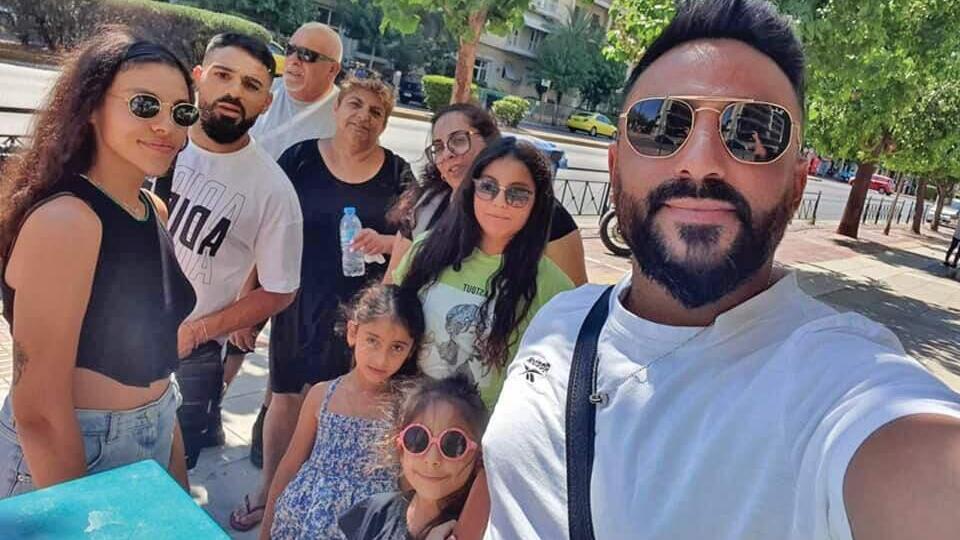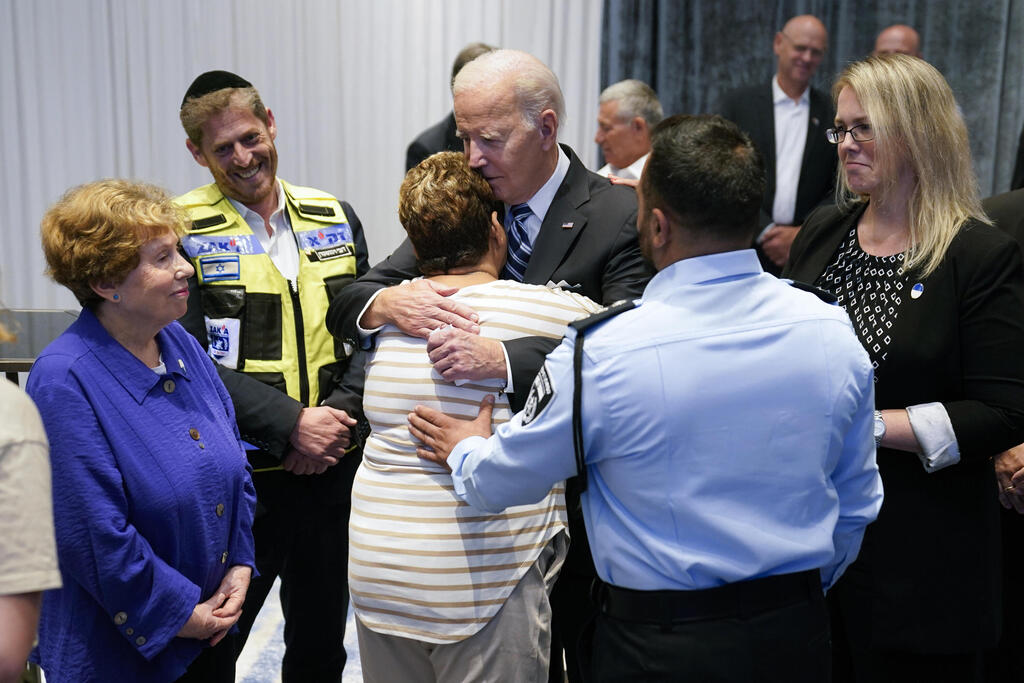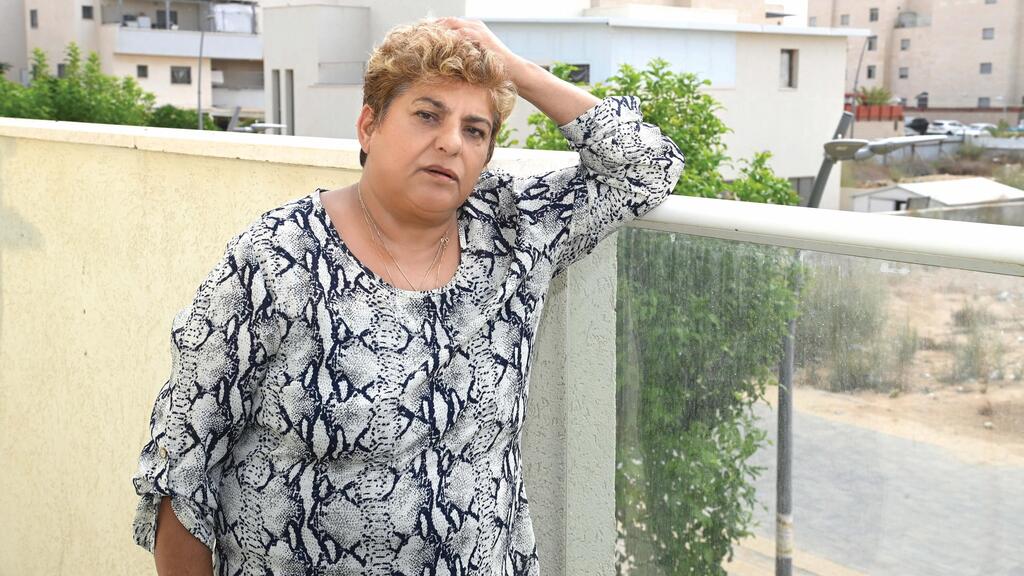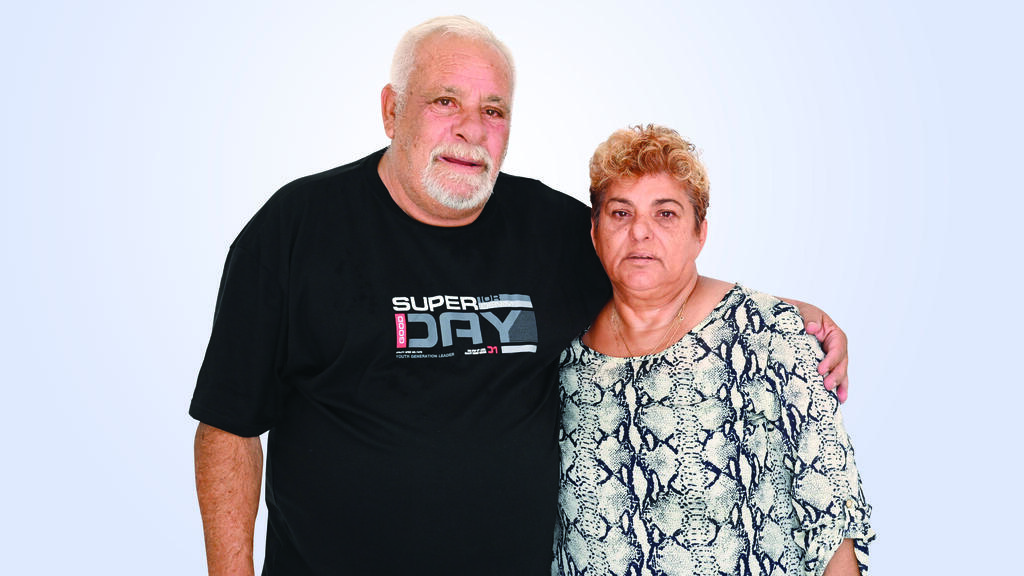The reunion between Rachel Edri and her son, Eviatar
(Video: Ilana Curiel)
Rachel Edri of Ofakim went to bed on October 6 knowing that the next morning her husband David would celebrate his 68th birthday. In the afternoon, she would still have time to buy a birthday cake. On Saturday night her children and granddaughters were supposed to visit, which would make him happy. She never imagined that she would wake up on Saturday morning to a completely different reality, a reality that only thanks to her special character and life experience made her a hero in Israel.
More stories:
"It's still hard for me to recover," she says two days after Black Saturday. "I can't sleep. Every time I close my eyes I see the terrorists. My husband and I are currently sleeping at the home of my son Eviatar. I can't go back to my house. There's no real house anymore, they made a pogrom out of it. I remember all the blood that was in it when at the end of they finally got me out of it. It's hard for me to see myself going back there again."
Edri, 65, became the woman of the hour and a network star shortly after the start of the war, after she described how she managed to prevent the Hamas terrorists who invaded her home from killing her and her husband. In television interviews she shared how, during the 17 hours she and her husband were both held hostage in their home, she managed to deceive the terrorists, speak to their hearts and even offered them tea, coffee and cookies. She will tell her story again when she meets with US President Joe Biden on Wednesday.
They may have been very unwelcome guests, but Edri was still the perfect host. Surprising? Her family members say that, in her case, it actually sounds completely logical. "We always had an open house," says Hanit Cohen, the Edri's oldest daughter. "Mother would cook for everyone: also for our uncles, neighbors and friends. Anyone who was hungry knew they could come to Rachel's house."
'I saw five rottweilers'
Edri was born and raised in the southern Israeli town of Ofakim, the daughter of parents who immigrated from Iran. She grew up in a tough home with 12 siblings. At the age of 12, she was already working cleaning stairwells to help support the family, and in the 11th grade she had to withdraw from school.
While most of her friends were already married at the age of 18, she insisted on enlisting in the Israel Defense Forces. "I served in Squadron 102 as a technical clerk," she says. "It was the most beautiful time in my life." At the age of 24, she married David , a truck driver (now retired), and had three children: Hanit, 40, a married mother of two who works as coordinator of activities at Moshav Tlamim near Sderot; Eviatar, 37, a police officer and divorced father of one in Ofakim; and Tal, 27, also a police officer from Ofakim, who is currently on vacation abroad.
4 View gallery


Edri family, from right: Evitar, Hanit and granddaughters, Rachel, David, Tal and partner
(Photo: Courtesy of the family)
At the age of 23, she started working at the canteen at the Tze'elim army base, where she has been working to this day - for 42 years. "She was always like a mother to the soldiers," says Hanit, "laughing with them, talking to them, helping them." Last June, Edri even received a certificate of merit for her many years of dedication, in a ceremony held at the President's residence.
Rachel remembers the exact time when she and her husband left the protective shelter and went back into their house. "It was six minutes past nine in the morning," she says. "As we entered the house, I saw five Rottweilers with weapons entering my house through the window. They started shouting at us 'martyrs, martyrs, Tanzim.' I thought to myself, what do I do now? I thought of running toward the front door, but I knew they could shoot me in the back. We decided to do what they say. They took our phones, broke them, then took us up the stairs to the second floor threatening us with the guns. They opened cupboards, threw all the things out of them, and then saw my sons' police uniforms and hats. They started shouting: ' Where are your children?' I lied and told them 'in America'."
"I was sure they would kill us on the spot"
That morning, three squads of terrorists roamed the city and opened fire on civilians. Five terrorists who escaped from the police forces are the ones who entered the Edri's house. The police forces surrounded the house, but knew that breaking into it could lead to the couple's death. And so the police, led by the rescue unit, stood at the door of the house trying for long hours to negotiate with the kidnappers, while the couple was locked up upstairs.
"At first I was sure they would kill us on the spot," recalls Edri. "I grabbed my husband's hand and told him, 'Come sit next to me, and whatever happens will happen.' Then I told them I need to go downstairs to inject myself with insulin. They agreed. Four of them stayed with David and one of them went down the stairs with me, pointing a grenade and a Kalashnikov at me," she said.
"One of the terrorists said to me: 'You remind me of my mother'. I told him, 'I am really like your mother. I will help you, I will take care of you. What do you need?'"
"After injecting myself with insulin, I pretended to pass out on the chair. The terrorist, who spoke to us in a combination of Arabic and Hebrew, said to me, 'Come on, come on.' He said to him: 'No, do you want us to release her? Bring us some prisoners in return.' The officer said, 'I promise you I will do it, just release her first.' I will leave my son. He immediately made a sign to me not to speak, not to show any sign that I know him, or God forbid that I am his mother," Edri says, describing what happened.
"One of the terrorists said to me: 'You remind me of my mother'. I told him, 'I am really like your mother. I will help you, I will take care of you. What do you need?'"
"The terrorist, who saw that I opened my eyes, ordered me to go up to the second floor again. I didn't want to. I told him that I didn't feel well, that I needed air, but he insisted. I went up with him, but I already had a plan: to say every half hour that I have to pee and that I need to go downstairs and do it. That way the police will be able to see all the time that I'm still alive."
"I bandaged a wounded terrorist"
Four hours after she and her husband were taken hostage, Edri decided to offer them refreshments. "I asked them if they wanted tea, coffee and cookies. They told me 'bring them.' Part of it was due to my desire to bribe them, but part of it was due to my nature. I went downstairs again with one of them. He held me close to the side of the stairs so that I wouldn't get close to the policemen, so I told the policemen at the entrance (which is close to the kitchen), to prepare them and I explained to them where everything was. While the police were making them their hot drinks, one of them asked the terrorist: 'How many friends do you have at home?' The terrorist replied: 'What do you care?' I immediately realized that this was an important question, so I put my whole palm on my cheek, to signal to them that they were five. The terrorist caught what I was doing and shouted: 'Rachel, no problems'. I told him: 'No, my head just hurts.' He hit me in the head with his cartridge. So my head really hurt."
Everyone wants to know what cookies these were. What was in them?
"These were cookies made in a cookie press. Moroccan cookies that I made for Yom Kippur to eat with a cup of tea. They really liked them a lot. At first they asked me to taste them to make sure there was no poison in them, but after that they drank and ate, and they became much calmer. I asked them how old they are. One of them was 40 years old and the rest were 25 to 30 years old. There was one who was really bad. A devil. He kept saying he was a martyr. But with the others I started having conversations, and at one point I even forgot for a moment that they were terrorists."
A few hours later, the first rescue attempt was made from the house. During the shootout one of the terrorists ("the worst of them all") was killed and another was wounded in the hand. Adri realized that the terrorists' agitated mood would work against her, and hurried to calm them down. "I told the wounded man: 'Come, show me,' and then I bandaged his hand to stop the bleeding. I gave him a glass of water and told him, 'Rest.' I told him he deserved something sweet. I asked the officers downstairs to bring me a can of pineapple, and I fed him until he fell asleep again.
"There was one who was really bad. A devil. He kept saying he was a martyr. But with the others I started having conversations, and at one point I even forgot for a moment that they were terrorists"
"Around four o'clock in the afternoon, I saw that the terrorists were starting to look nervous again. I imagined that they must be hungry and that hunger only adds to the nervousness. I asked them, 'Are you hungry?', they answered me, 'Yes.' " I went down again with the terrorist who accompanied me with a weapon on the stairs, and I asked the policemen to bring them something to eat. Right after that they were calmer again," Edri says.
At this point the wounded terrorist was barely conscious, another one went to sleep, and Edri was left to sit next to two of them. "I had a feeling that as soon as night came they would be able to rescue me and that I should bide my time. I told them: 'Come on, you will teach me Arabic and I will teach you Hebrew.' One of them started singing songs by Lior Narkis, and I sang songs by Umm Kulthum."
Is it true that you asked them what they do in life?
"Yes. I said to them: 'Tell me, besides being martyrs, what else do you do? It's a pity that we are constantly fighting. Let's live in peace, where you aren't constantly being killed and ours aren't constantly being killed. Your soldiers won't be harmed if they don't start.'"
Only around two in the morning, after about 17 hours as hostages, was another rescue operation carried out that led to the release of the couple, during which the terrorists were killed. Thanks to the fact that Eviatar sketched the house for the police, they knew where they could enter to surprise the terrorists.
Did you realize that you have since become a star? Have you seen all the things online that that you have inspired?
"The truth is no. I'm very afraid now to go on the phone and the Internet. I'm afraid to see the faces of the terrorists."
Do you know that in Israel you are considered a heroine?
"After I was rescued, I didn't stop thanking the rescuers and the head of the rescue team, Arkady Shuster. He said to me, 'Rachel, you are a hero.' You were smart and that's how you survived.' But I told him: 'I really don't feel like a hero. You, the soldiers and the police, are the real heroes.' I know that, in the end, it was thanks to them that I was saved."







